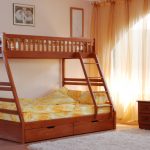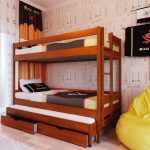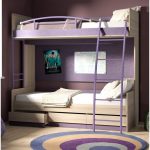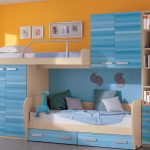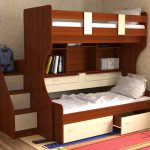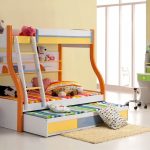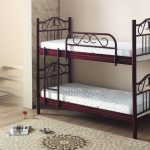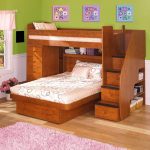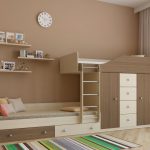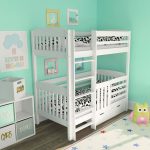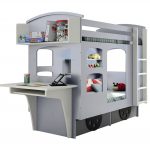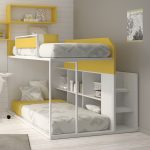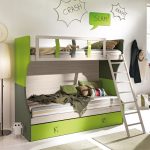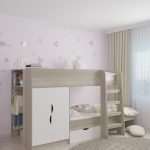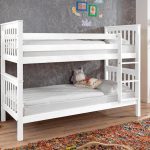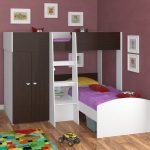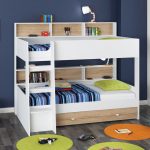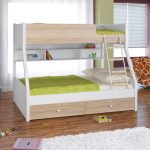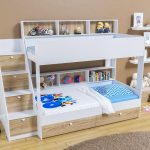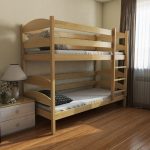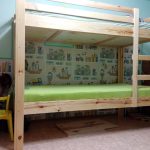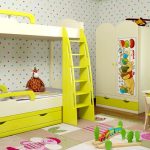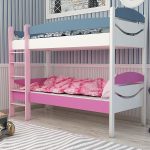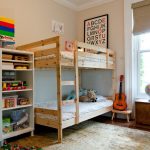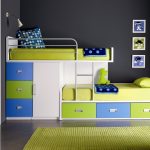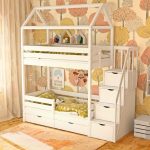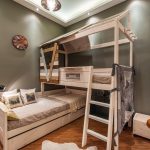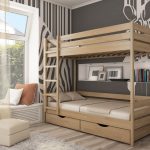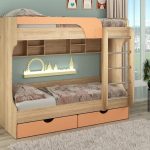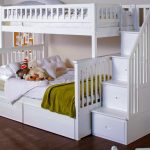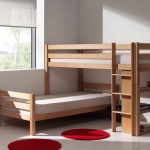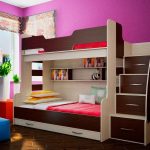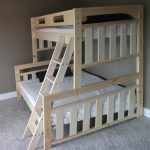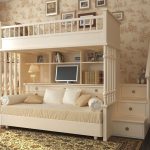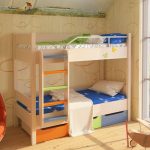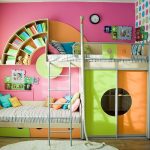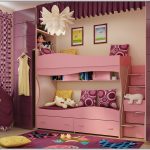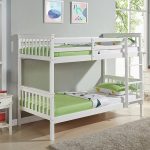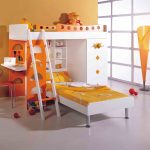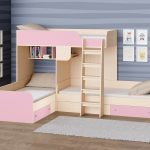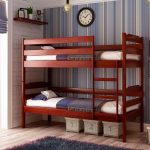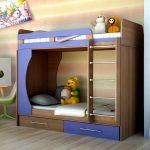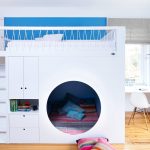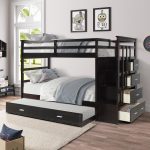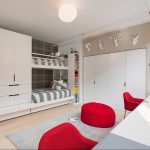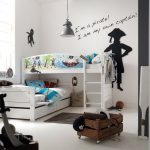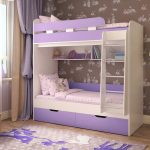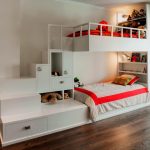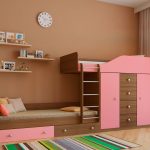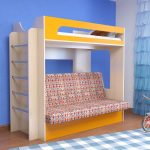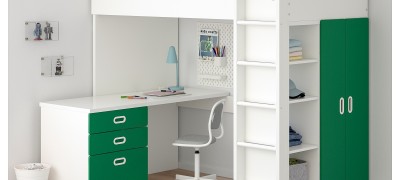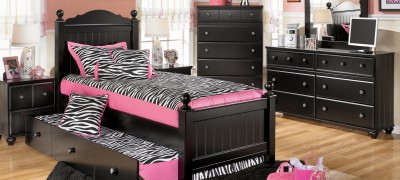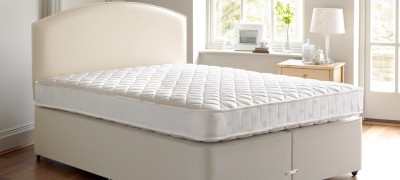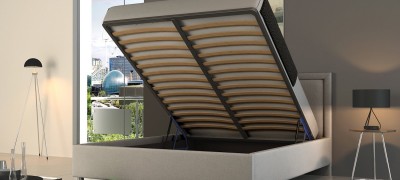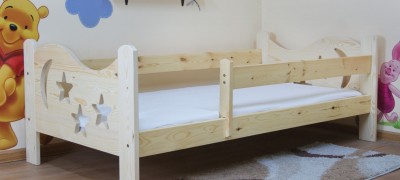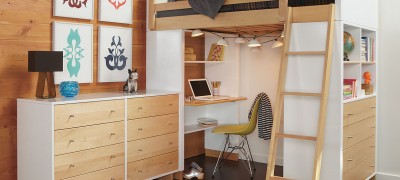Description and selection of bunk beds
Bunk beds for children have been known for many decades; more than one generation has spent at least a third of their childhood in them. Practical, comfortable and inexpensive design serves not only as a sleeping place, but also as an area for games, storage of things and toys. There are a lot of models on the market, from the article you will learn how to choose the best one.
- Dimensions and design features of bunk beds
- Types of bunk bed designs
- Pros and cons of bunk beds
- Things to consider when choosing a bunk bed
- How to choose the right mattress
- Assembly and arrangement in the interior
- The best models and manufacturers of bunk beds
- Video: children's bunk beds
- Photos of children's bunk beds in the interior
Dimensions and design features of bunk beds
The main difference between bunk beds and others is the arrangement of sleeping places one above the other.
A characteristic feature of the children's models is their unique design, adjusted to the children's perception of the world. The beds are made in the form of a fairytale palace, a pirate ship, a car and even animals. It is not difficult to order an individual design, although it will cost a little more.
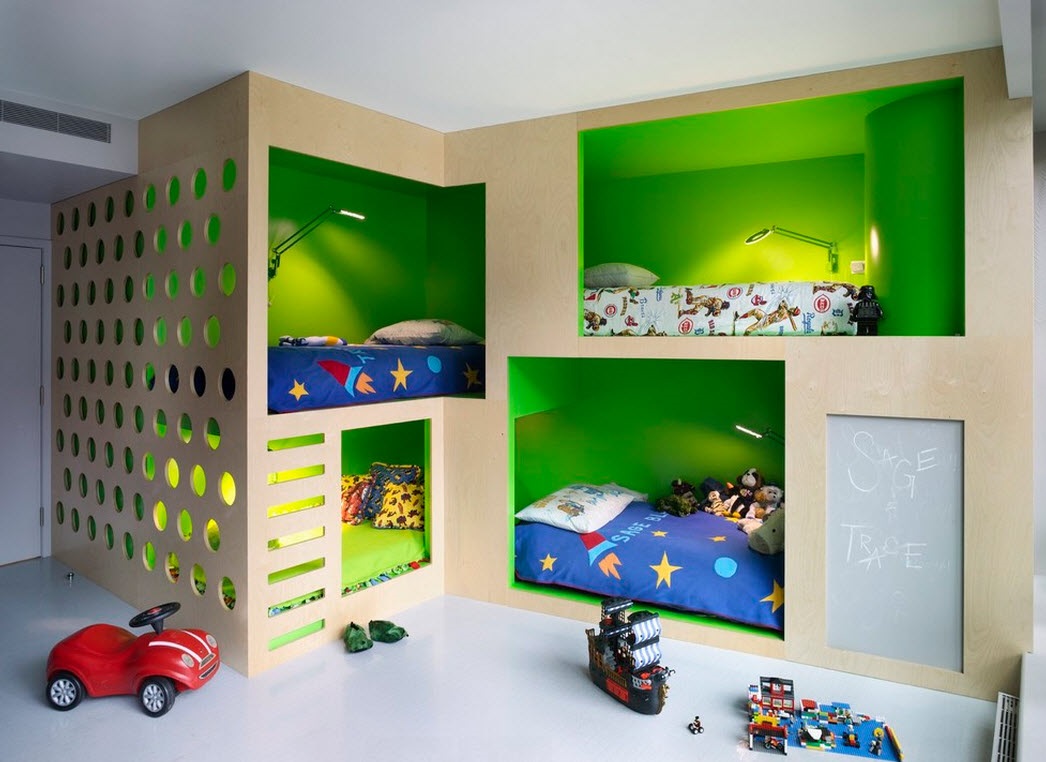
Another important feature of children's bunk beds is high sides. The child will not fall even after playing very hard.
It is not only the construction and design that matters, but also the size of the bed. It is important that it matches the age and height of the beloved child.
- For babies up to 3 years old, 119x64 cm beds are suitable.
- Children who have reached 3-5 years old need to buy models 141x71 cm.If the child is tall, then 160x70 cm.If very tall, 196 cm.
- For a child who is 7-13 years old, a product measuring 70 by 180 cm -91x201 cm is required.
- For teenagers, manufacturers offer bunk beds 70 by 180 cm -91x201 cm.
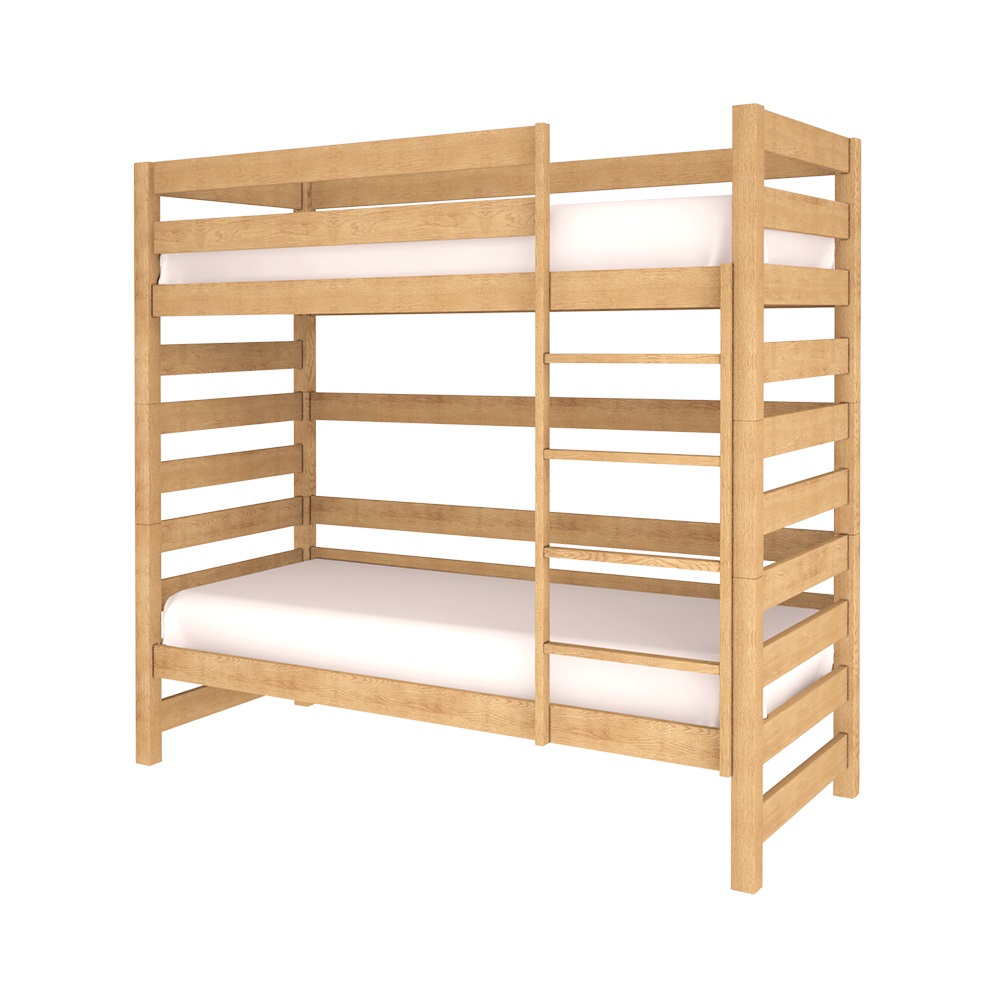
The optimal height of the upper tier is 165-175 cm. The height of the lower tier for preschoolers should be 30 cm. For children aged 7-14 years old - 40 cm. For teenagers - 50 cm. The optimal distance between tiers is 80-90 cm.
Advice. Give up the size of the bed end-to-end, the child is constantly growing. Buy models with a stock. Your son or daughter will feel freer in it, and you won't have to buy a new one so soon.
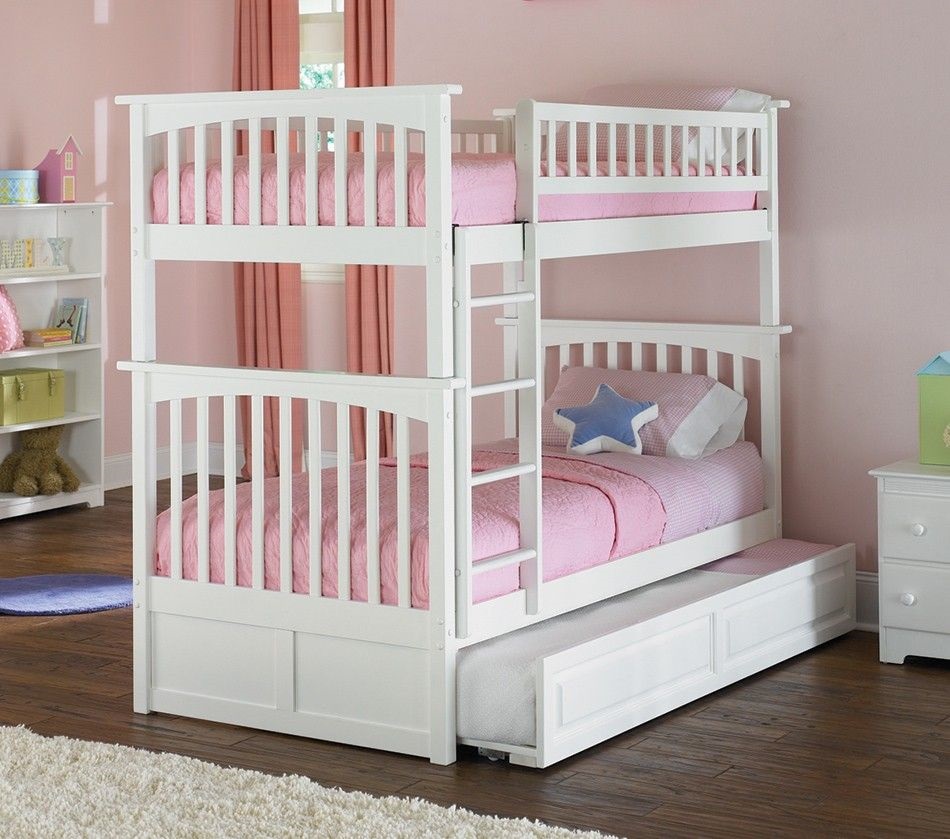
Types of bunk bed designs
There are a lot of them. The most common are:
Classic bunk bed for children
Two berths one above the other, which are connected by a vertical staircase.
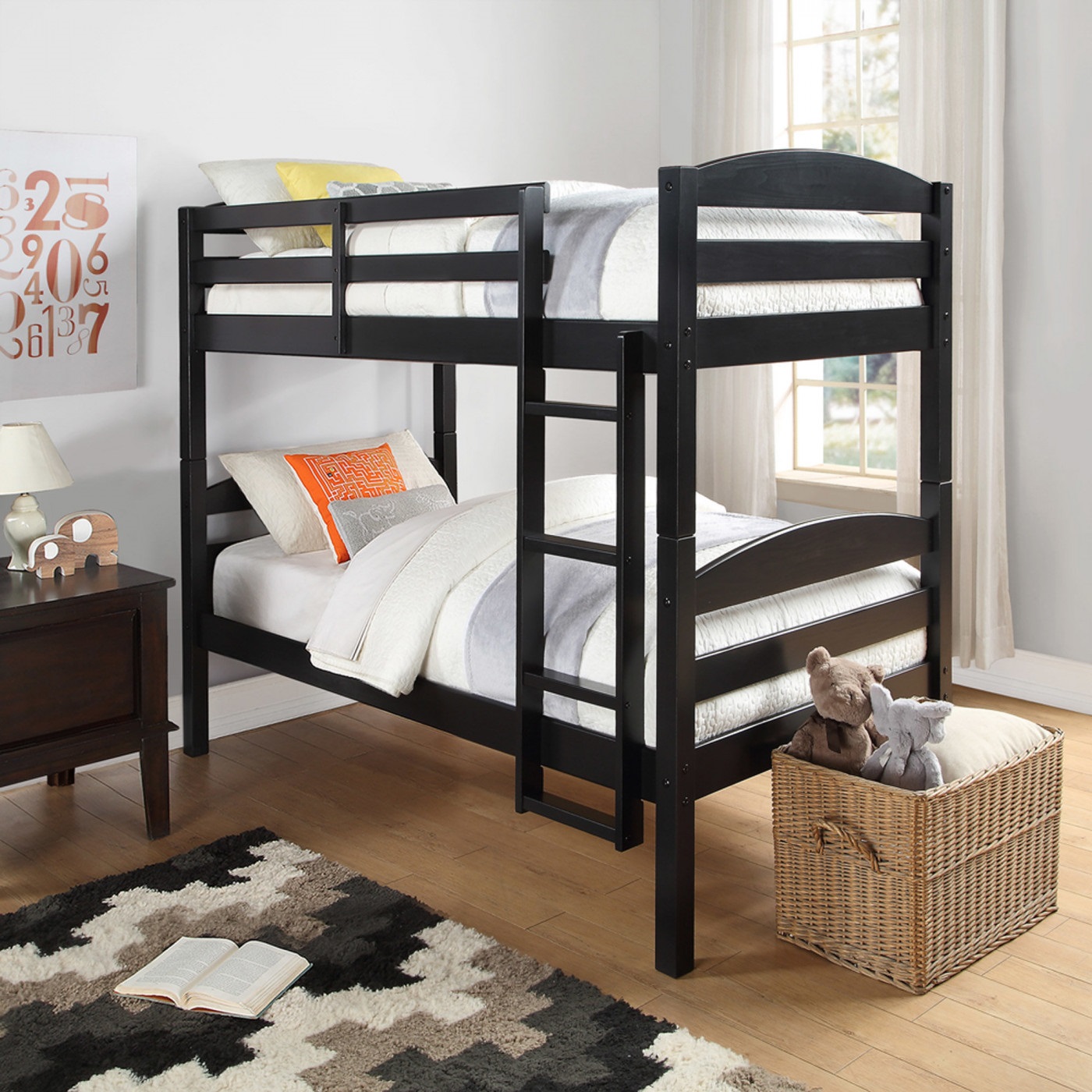
With removable deck
It turns into a regular sleeping place very easily.
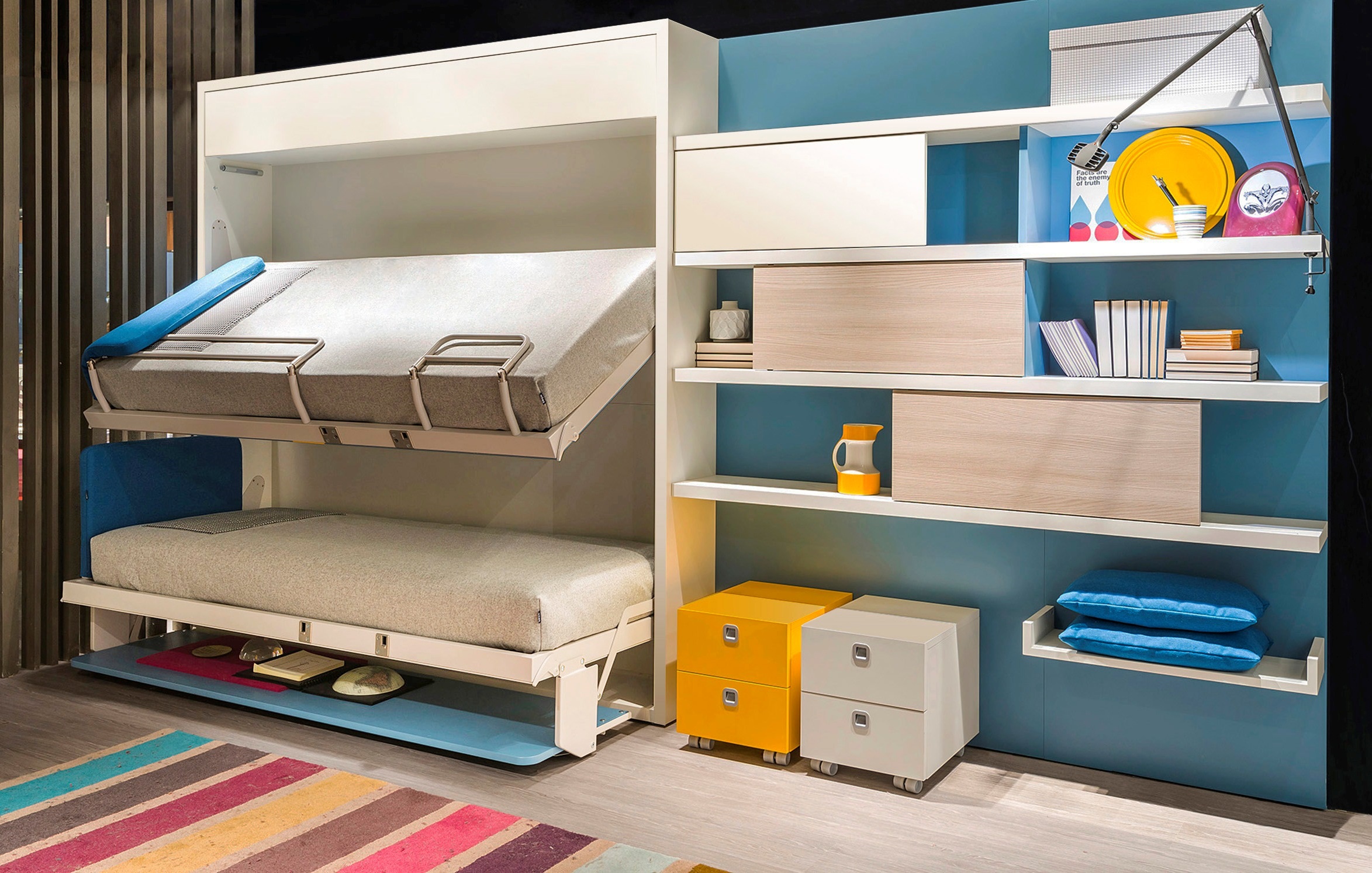
For one child, "attic"
The sleeping place is only upstairs.At the bottom there is a play area, a table or a storage system for items.
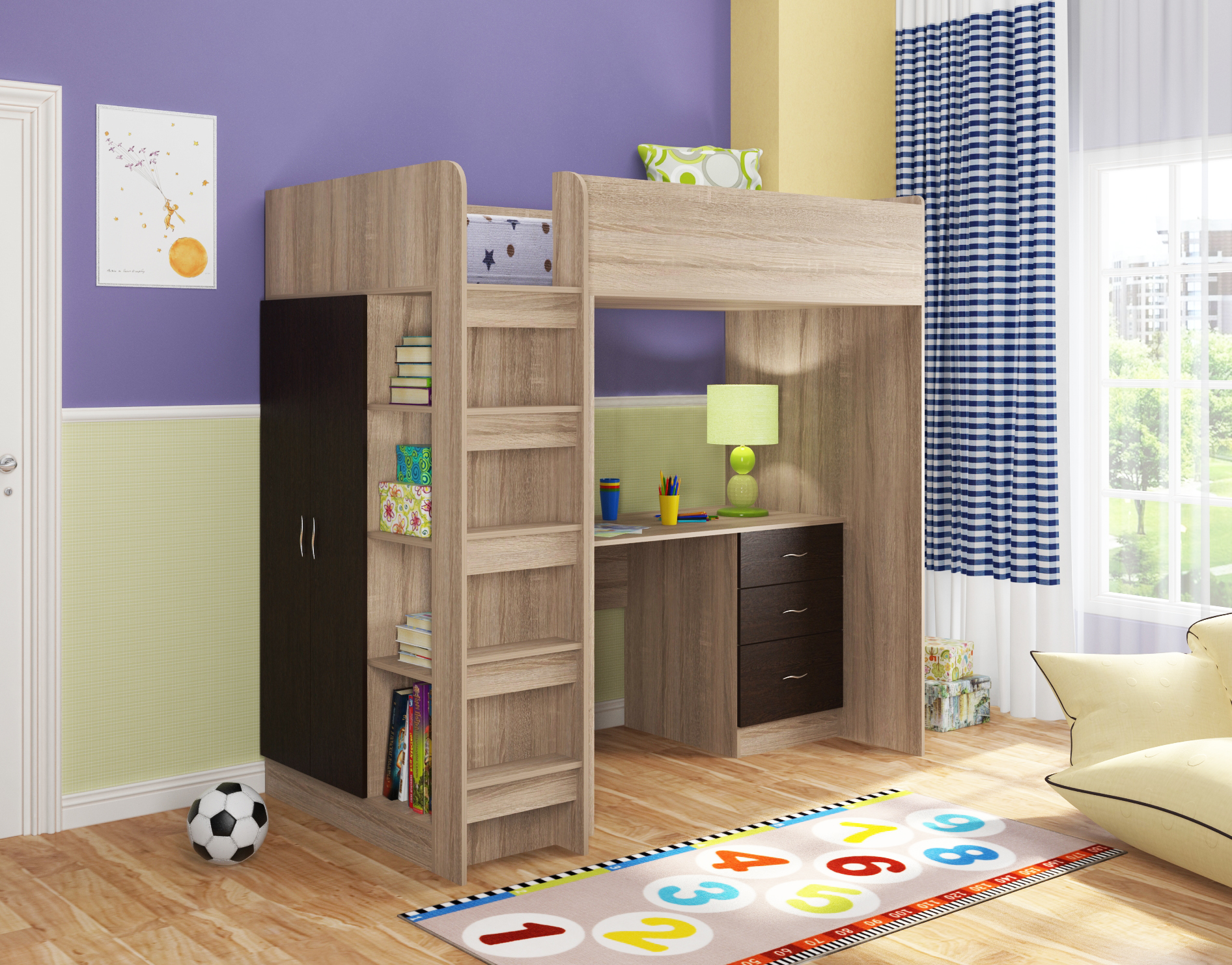
Transformers
The transformation options are very different. This can be a bed with a sofa below, a bed with a lifting mechanism in the form of a wardrobe, a pull-out and folding model.
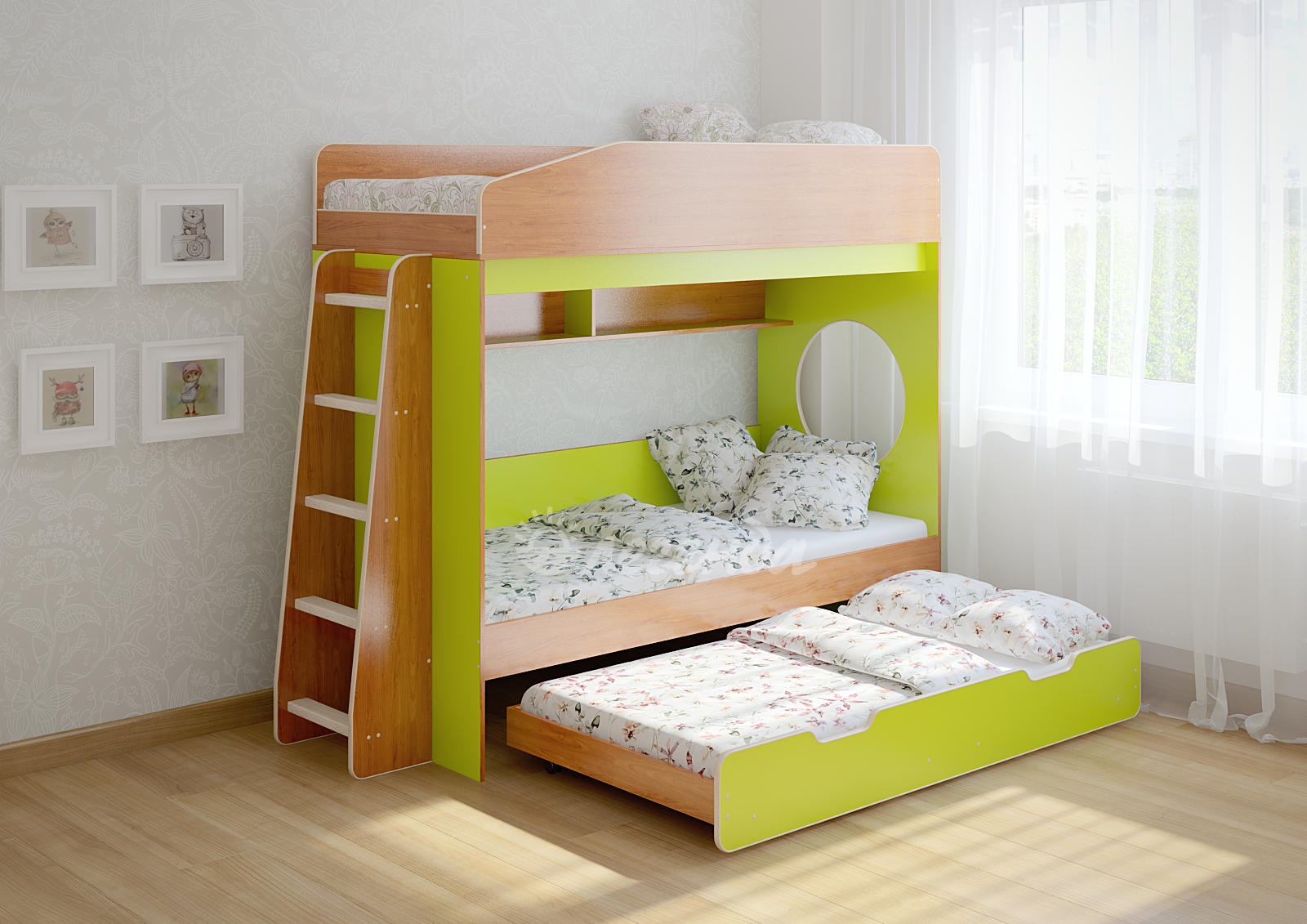
Modular
Bunk beds can be combined with different furniture. They can be equipped with spacious additions in the form of a wardrobe, chest of drawers, etc.
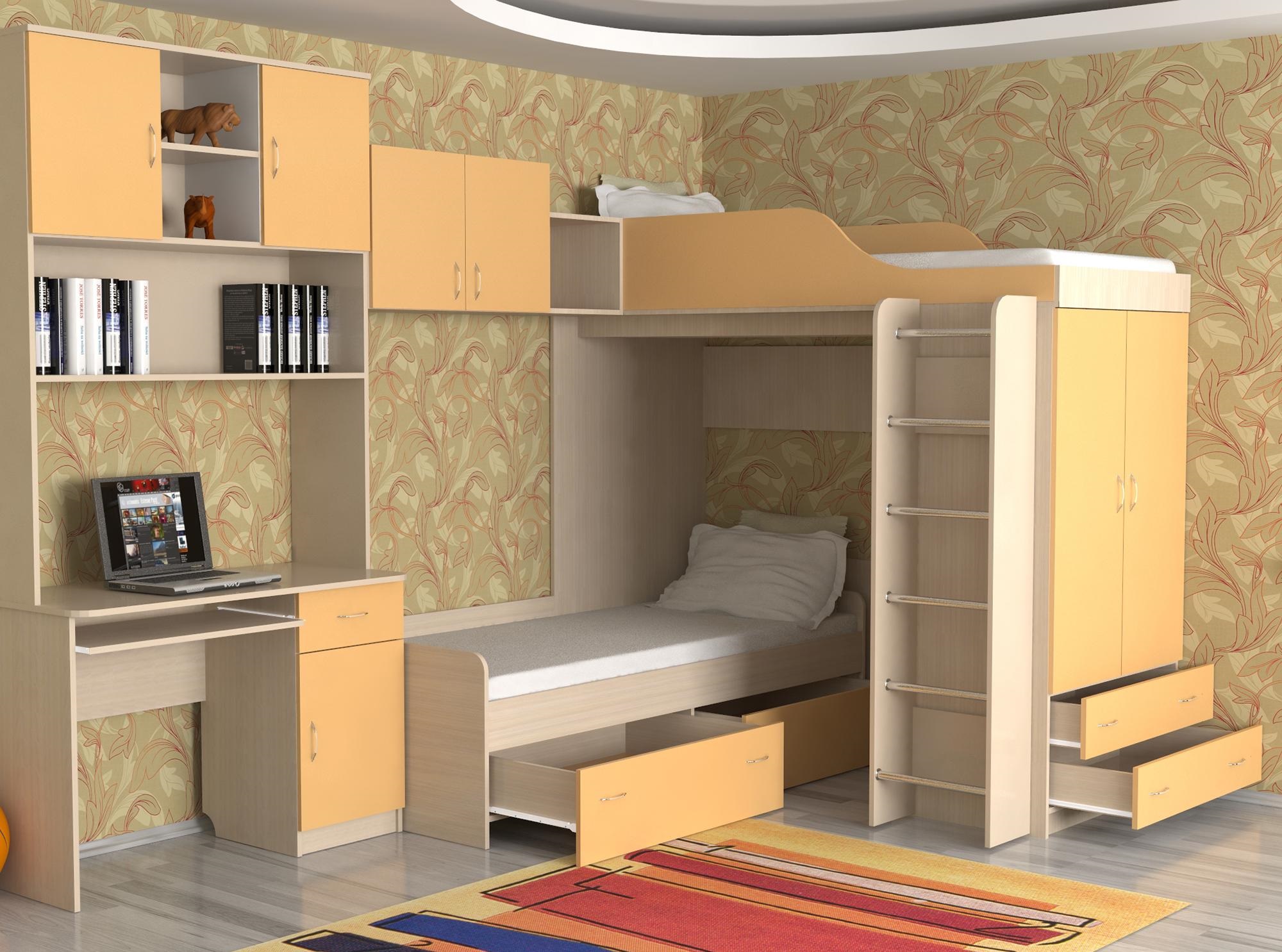
One and a half storey
In them, one berth is pushed under another. If the children actively jump, they will break such a bed quickly enough. Therefore, if your children are very restless, it is better to refuse such models.
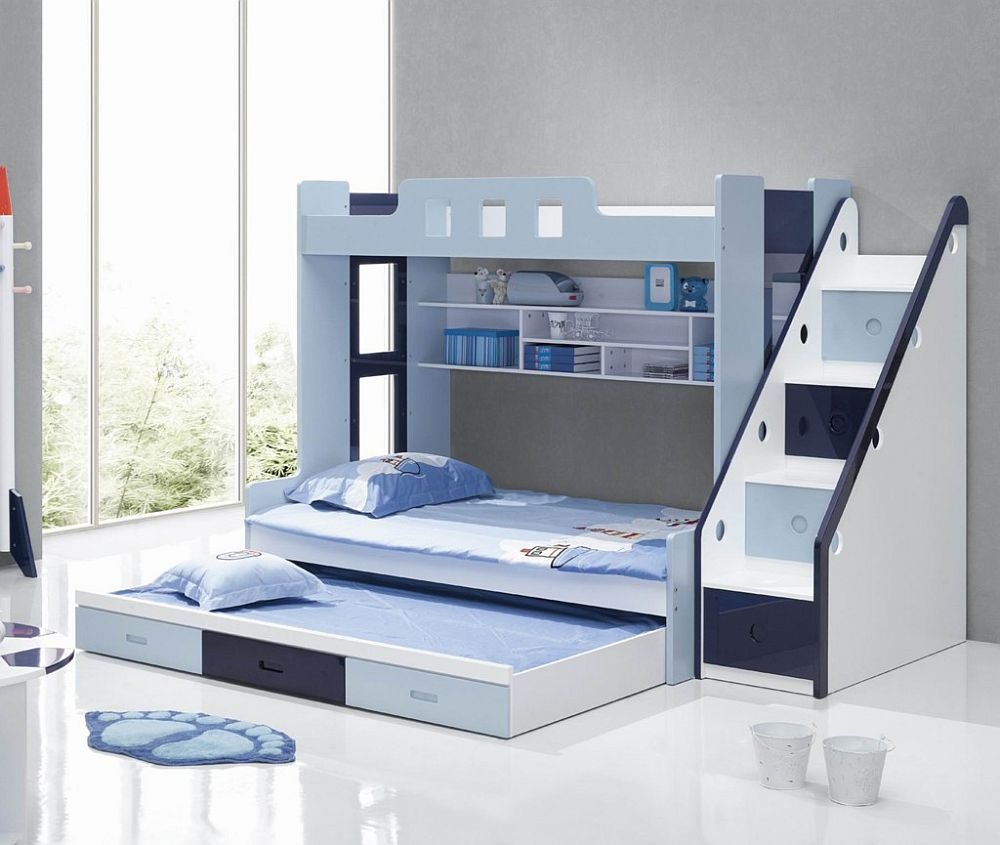
Pros and cons of bunk beds
Their main advantages:
- Saving space. This is especially true if the children's room is not large.
- Multifunctionality. A wardrobe, chest of drawers, and other furniture are built into many models.
- Saving the family budget. A bunk bed is cheaper than two regular beds.
- A very large assortment. You can see a variety of models on sale, and what you can't find can be made to order.
- Maximum safety. Even cheap models are equipped with high sides, falling is almost impossible.
Minuses:
- Conflicts are possible between children for the right to sleep on the upper tier.
- The furniture is not suitable for children who are afraid of heights.
- Not all floor coverings can handle this kind of furniture. Traces of rollers may remain on them, other damage may appear.
- Incorrect installation and adjustment of the structure can lead to very serious consequences.
- If the ceiling in the room is low, then air exchange may be difficult. It will not be comfortable to sleep upstairs.
Advice. According to psychologists, it is advisable to buy a two-level bed if the age difference between children does not exceed 3-4 years. At the same time, gender does not matter.
Things to consider when choosing a bunk bed
Particular attention should be paid to the following factors.
Security
The bed should be as stable as possible. Do not stagger, much less topple over, no matter how children play on it. No sharp corners or protruding fasteners. Parents must explain to their children how to behave on the bed is absolutely impossible.
Environmental friendliness
The substances released by some materials are not safe for humans, especially for the child's body.
Service life
The bed should be sufficient for at least the time until the child grows out of it. Everything is the same as with other children's things.
Material of the frame of the product
It can be made of chipboard, painted MDF, wood, metal. MDF and chipboard - a budget option. Be sure to ask the seller to show quality certificates on the materials.
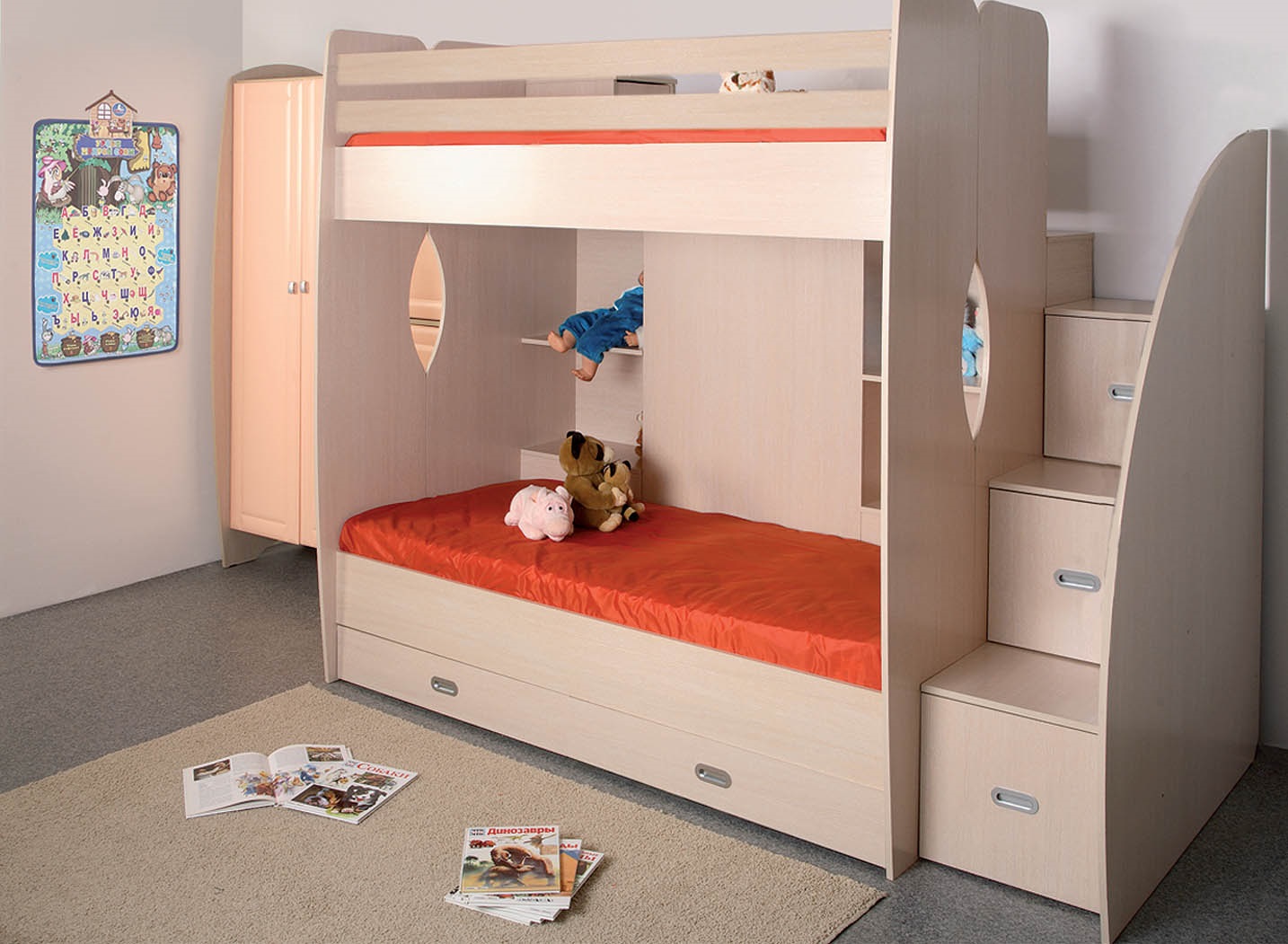
For frames made of wood, an array of oak, ash, beech is used, but the undisputed leader is pine. It is characterized by a reasonable price, environmental friendliness, long service life, and high strength.
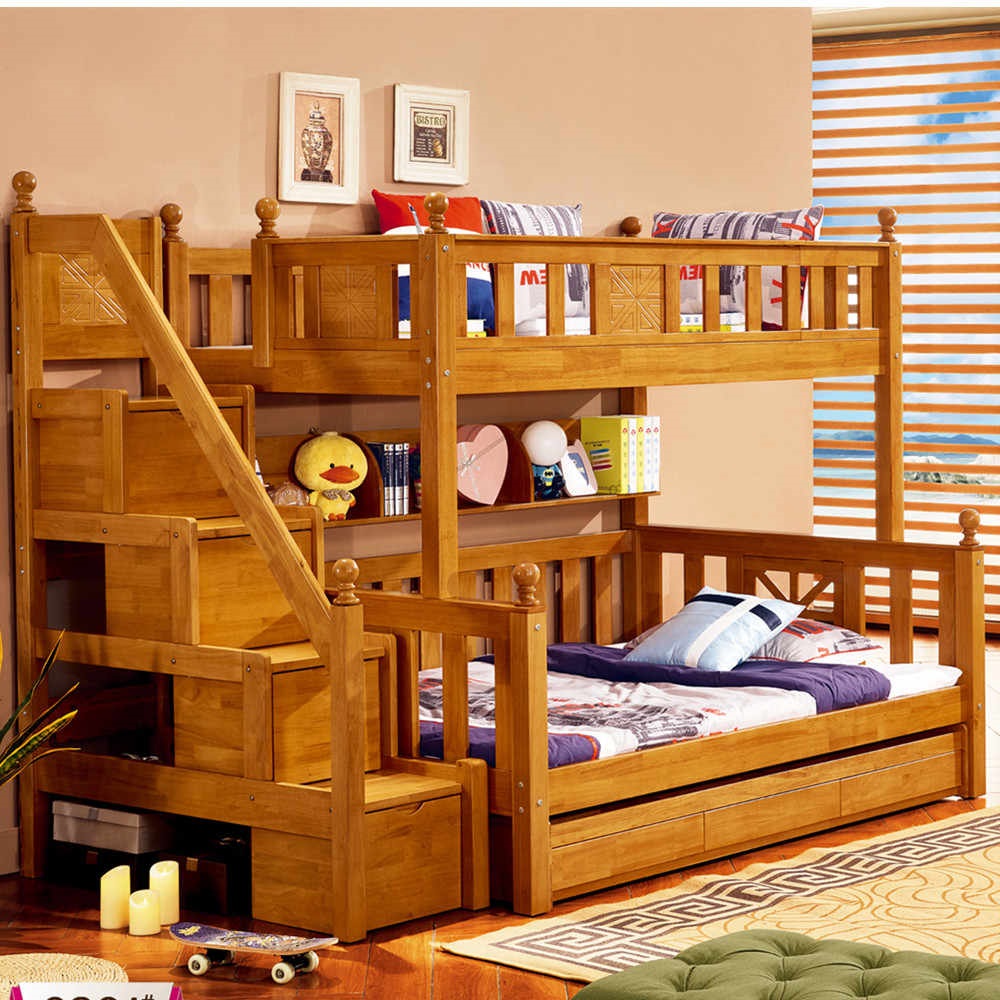
The metal frame is stronger than wood, but in terms of aesthetics it loses to it.
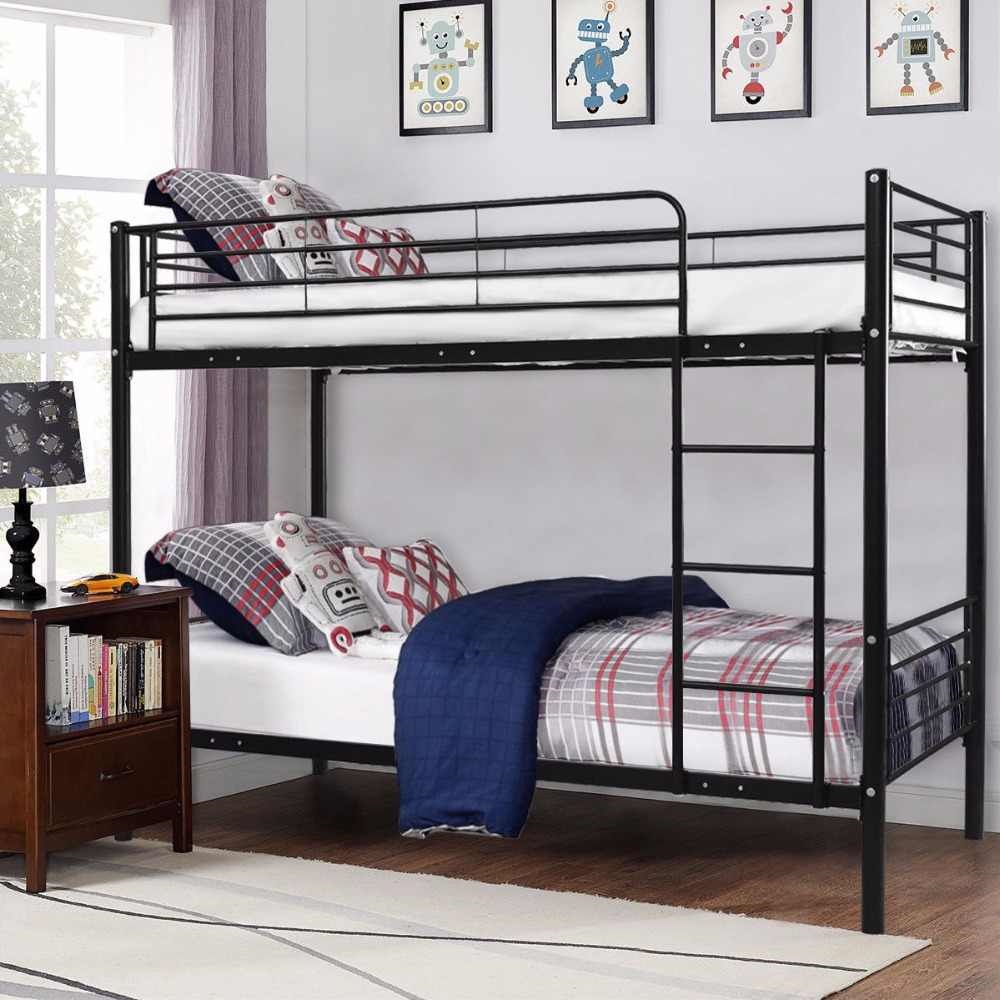
Base type
It can be conventional or orthopedic. The first is an ordinary plane, the second consists of a frame with bent lamellas fixed to it.
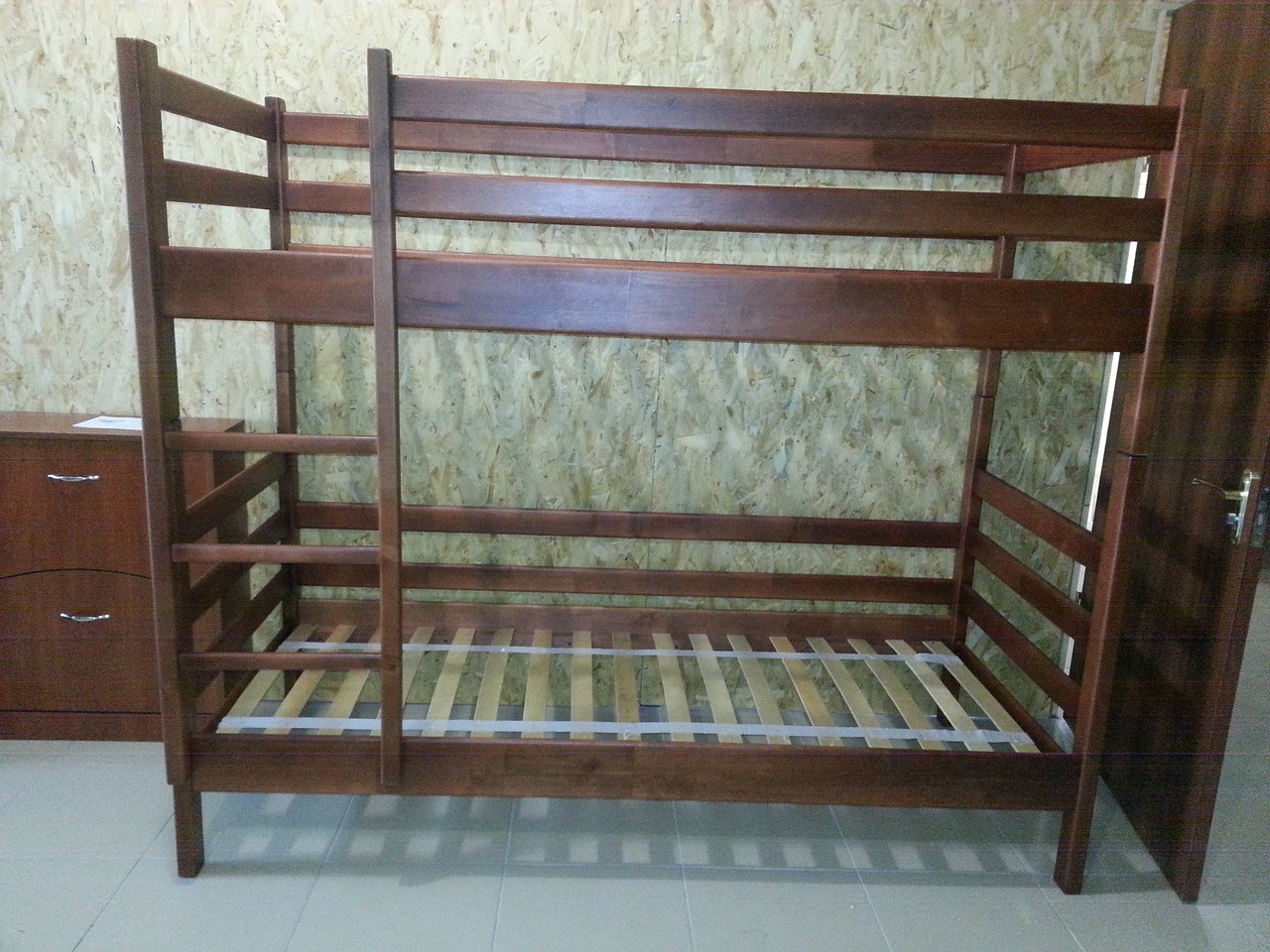
Stairs
She should have comfortable steps and handrails. It itself is made of non-slip materials. Its standard width is 40 cm. The distance between the bars is 20-25 cm.
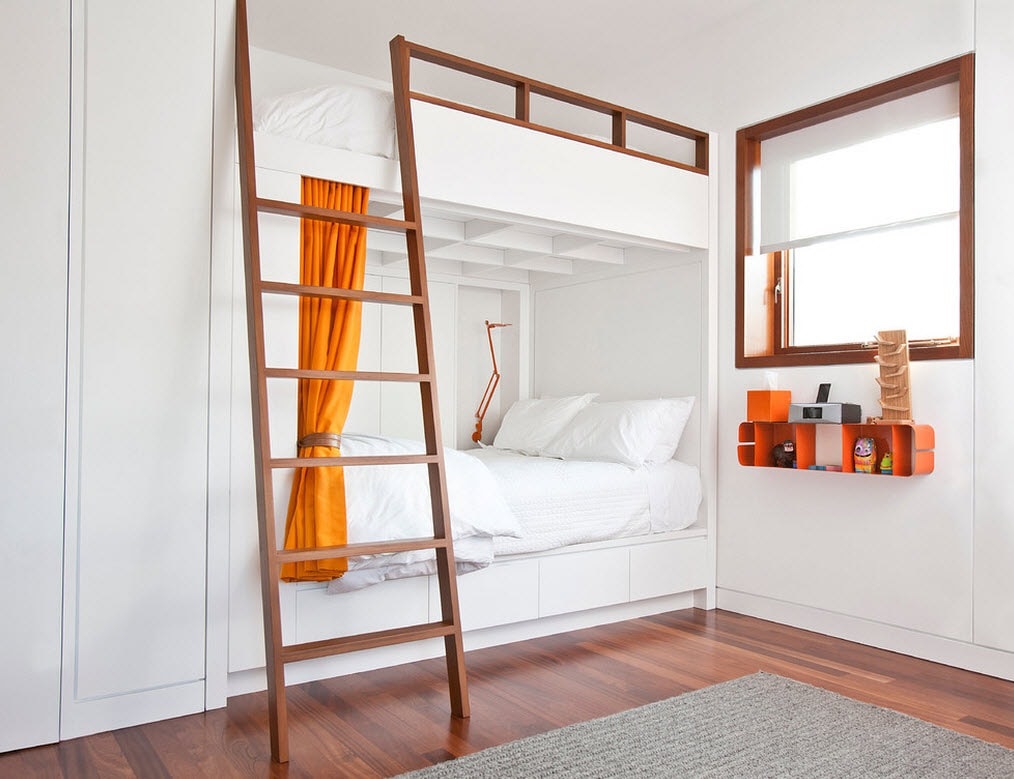
Tastes of children
This is an important factor. They should like the furniture, or at least not cause rejection.
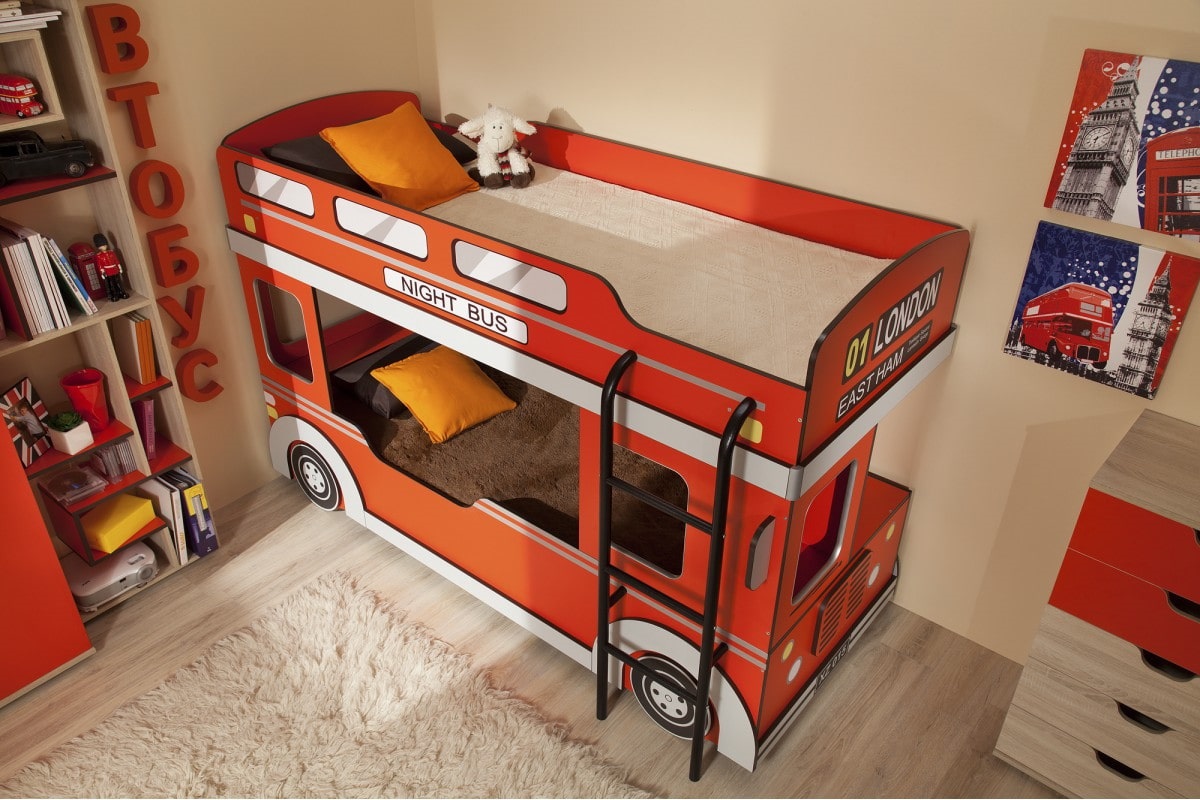
How to choose the right mattress
Its dimensions are described in the section on the dimensions of the bed. In addition, we can only say about the height of the mattress for the upper tier. It is determined by the comfort of sleeping and the height of the sides and is most often 16 cm. A higher mattress can make it difficult for the child to move to the stairs. For the lower berth, a mattress of any height is suitable.
Particular attention should be paid to the rigidity of the product.
- At the age of 2 to 6 years, the neck and lower back are actively formed, so the rigidity should be medium or increased. No springs are desirable.
- For children from 6 to 12 years old mattresses of medium hardness with springs are acceptable. The child's neck is fully formed by the age of 7, the lower back by 12.
- After 12 years, the main thing is to prevent curvature of the spine, so the rigidity should be medium, the presence of springs is allowed.
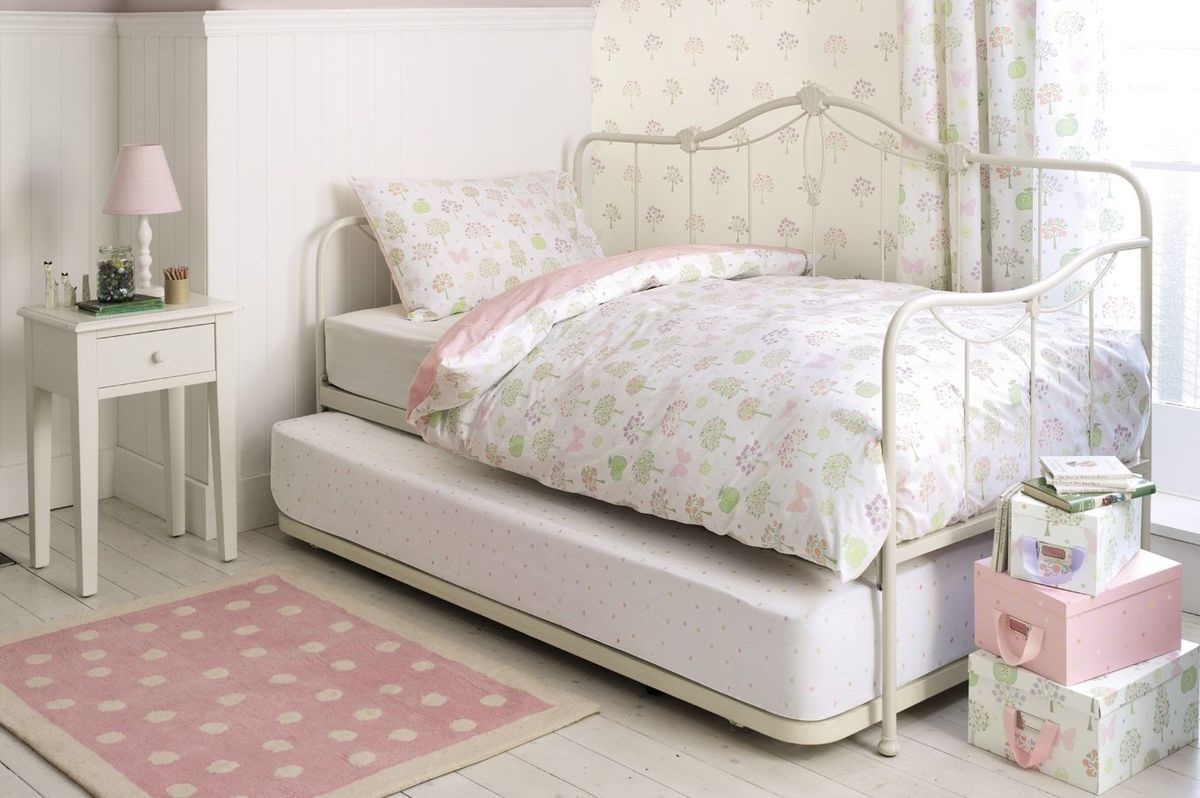
It is desirable that the filler of the springless mattress is hypoallergenic. From natural fillers, coconut coir and latex are popular, from synthetic ones - polyurethane foam.
Spring mattresses are composed of a spring block and layers of filling, which create additional comfort. Choose models with an independent spring block for your children. The smaller the diameter of the springs, the better.
Advice. In the cold season, during the heating season, the air near the ceiling is drier, so the room should be very carefully ventilated.
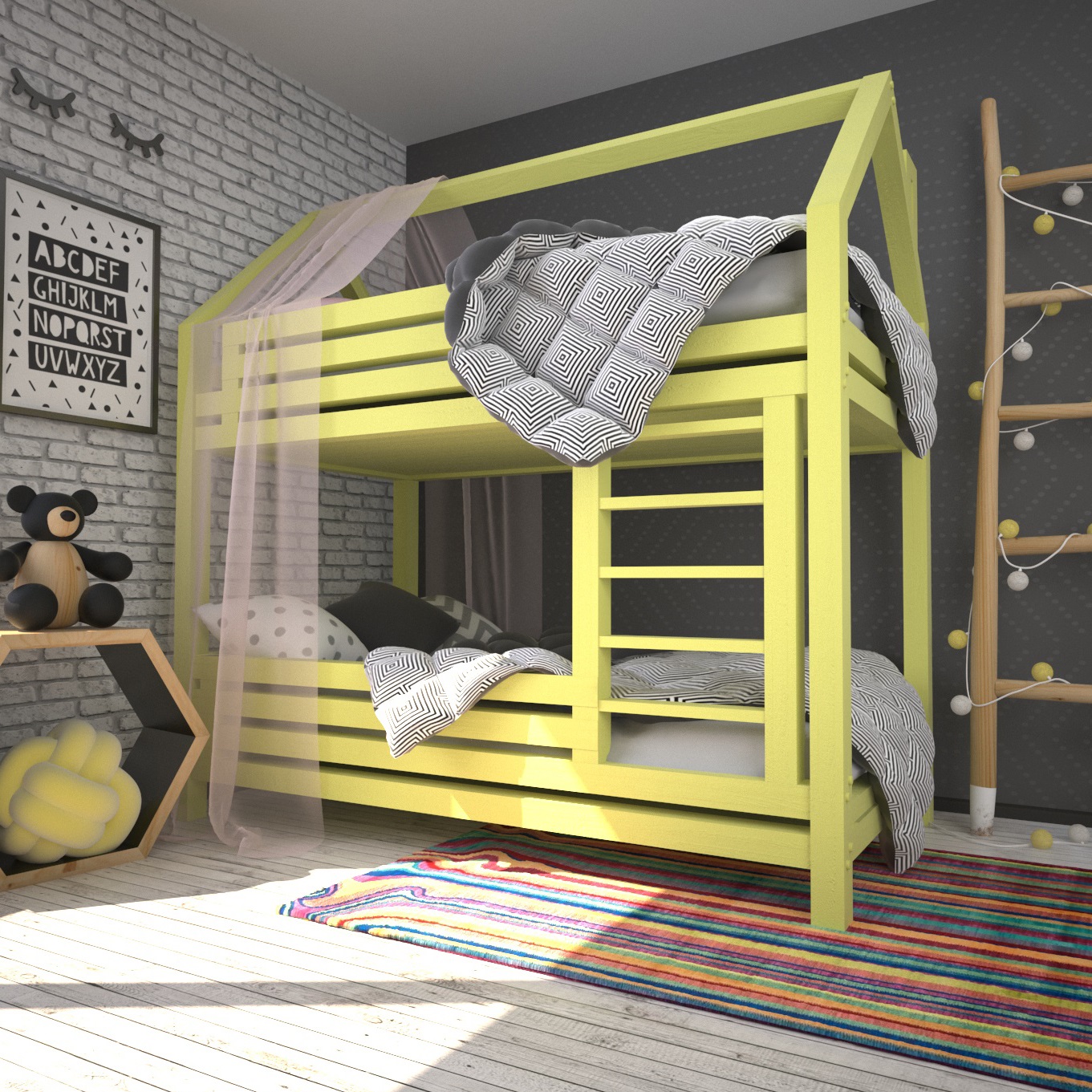
Assembly and arrangement in the interior
The bed should be easy to assemble and disassemble, it should be easy to rearrange it to another place. The need for this may arise, for example, during cleaning.
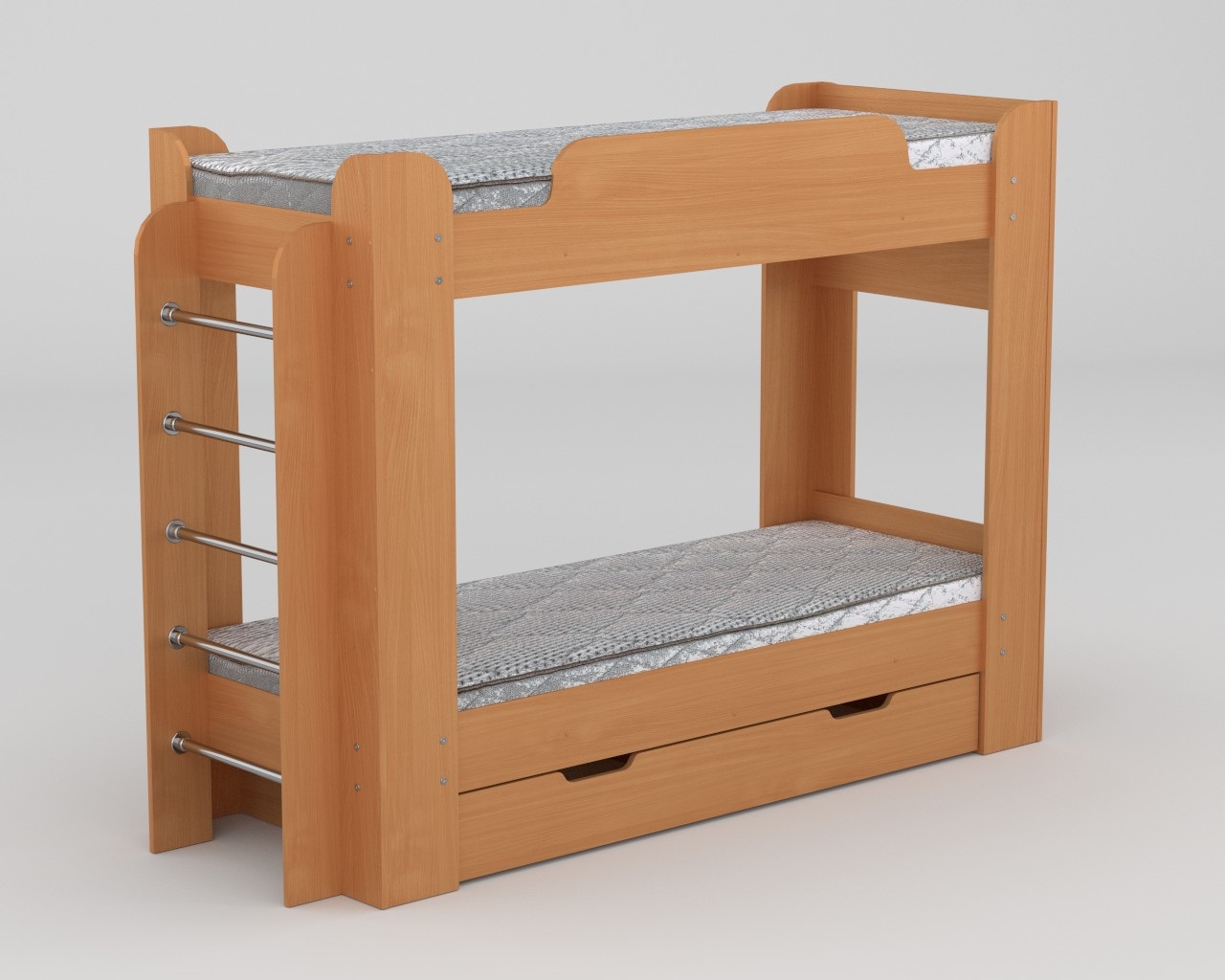
The design of the bed should be in harmony with the environment.
If the room is decorated in a high-tech style, you should buy furniture with clear geometry, strict lines, and a laconic shape. It will be boring for small children, for high school students it may well be suitable.
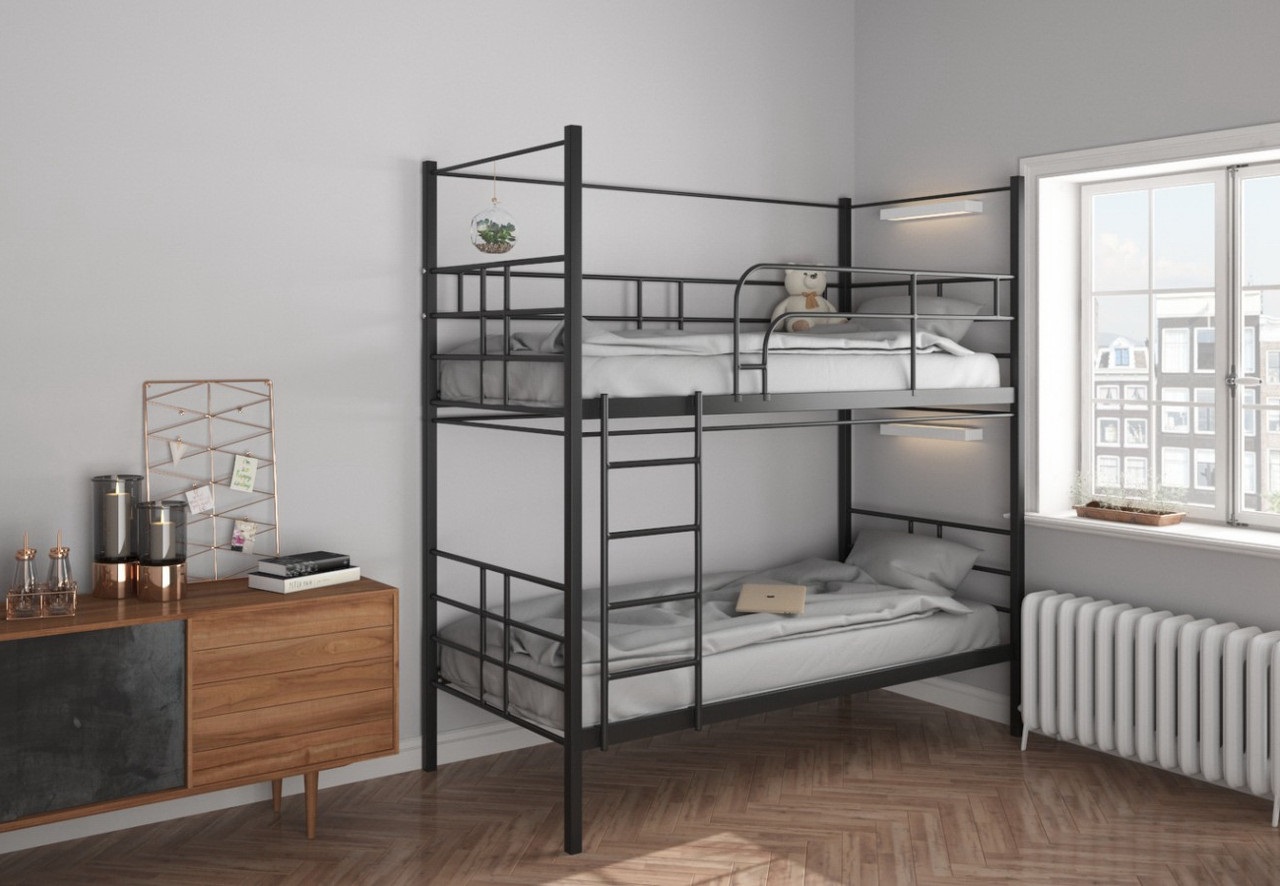
Romantic style is preferred for girls. The furniture has rounded elements, a lot of decor and accessories. Bedding in warm and muted colors.
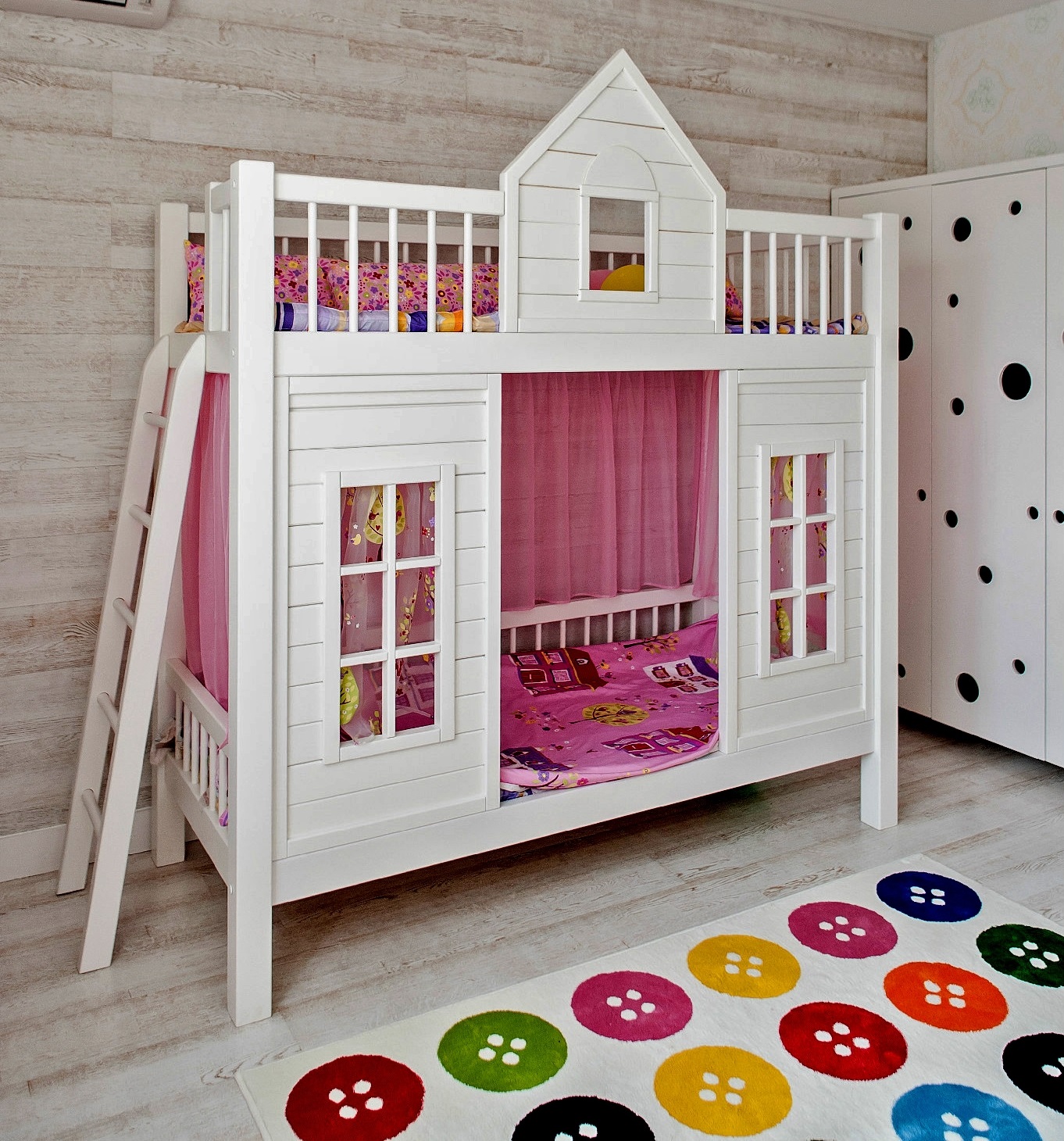
The eco-style room is characterized by natural motives, natural materials, a lot of light and free space. Relevant for both toddlers and adolescents.
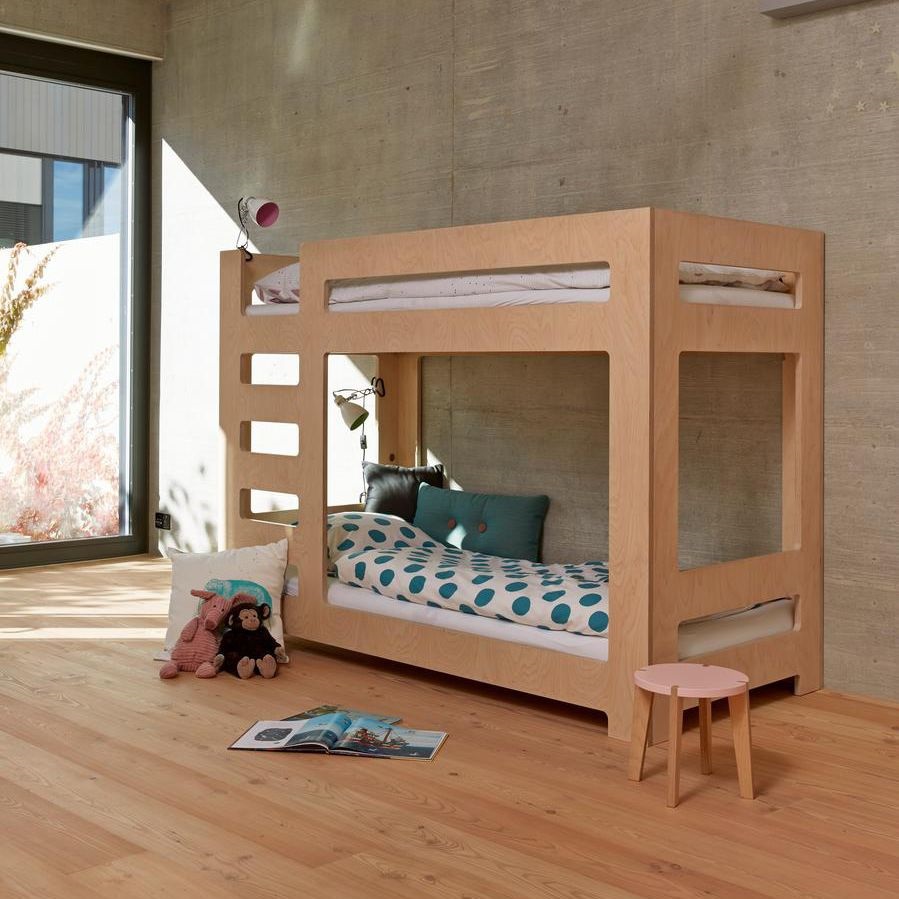
The best models and manufacturers of bunk beds
Model "Granada" from the company "Formula Mebeli"
At the time of this writing, the average price is about 10 thousand rubles. The weight of the bed is 63 kg. Able to withstand 180 kg. This is largely due to the sturdy metal frame. There is a headboard and footboard. You can choose the color scheme.
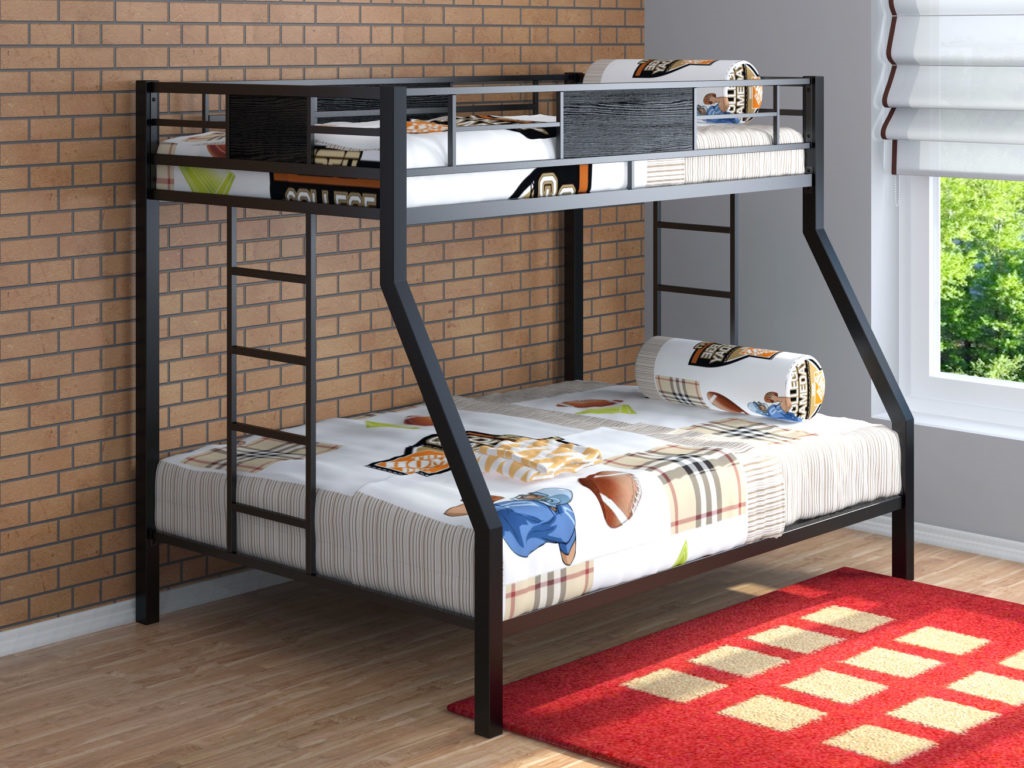
Model "Sevilla-2" from the "Redford" company
The average price is 13 thousand rubles. Weight 60 kg. Able to support 150 kg. Colors beige, brown and black. Multiple assembly / disassembly is allowed.
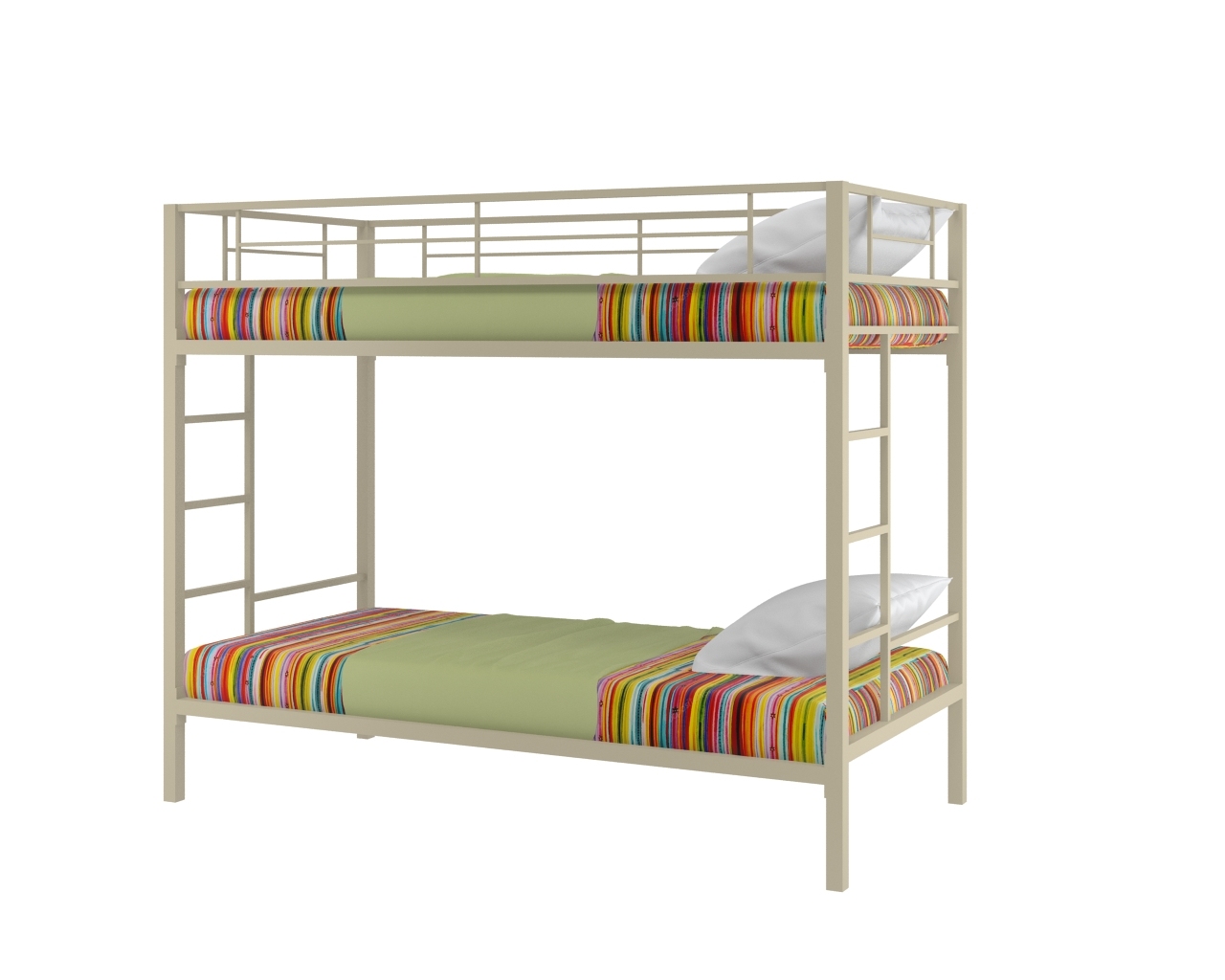
Model "Junior 1" from the company "Karivi"
The average cost is 18 thousand rubles. Weight 170 kg. Withstands 75 kg. In the manufacture were used laminated chipboard 16 mm and ABS edge. There are spacious linen drawers and a bookshelf.
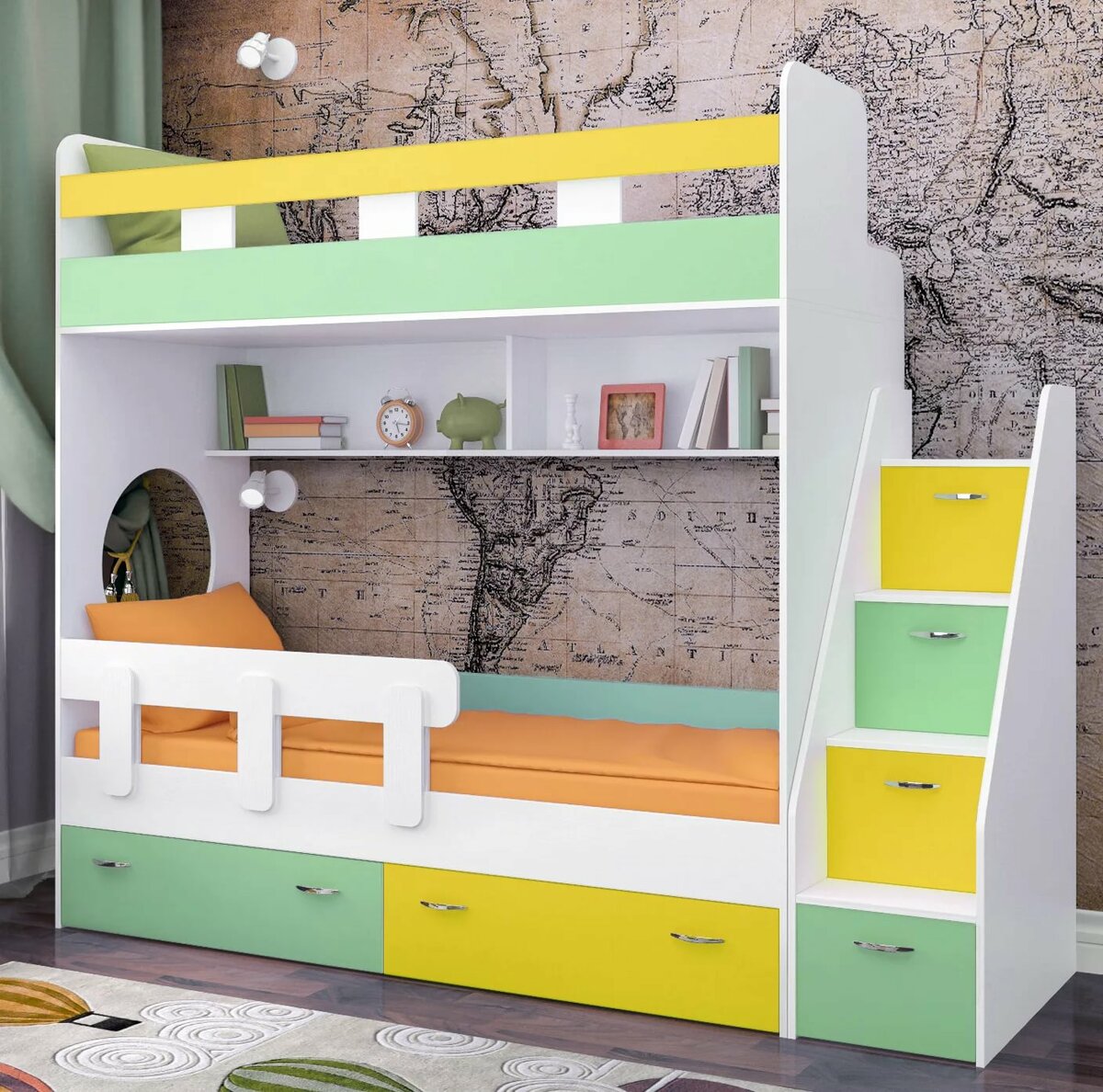
Model "Violet" from the company "Fiesta ECO"
The price is about 20 thousand rubles. There are two impressive storage containers and a wardrobe with four drawers. Laminated chipboard materials and PVC edges.Very high quality build.
Model "Bastion-2" from the company "Vladimirskaya MK"
The price is about 25 thousand rubles. There are capacious drawers. Pine frame. Wide color palette.
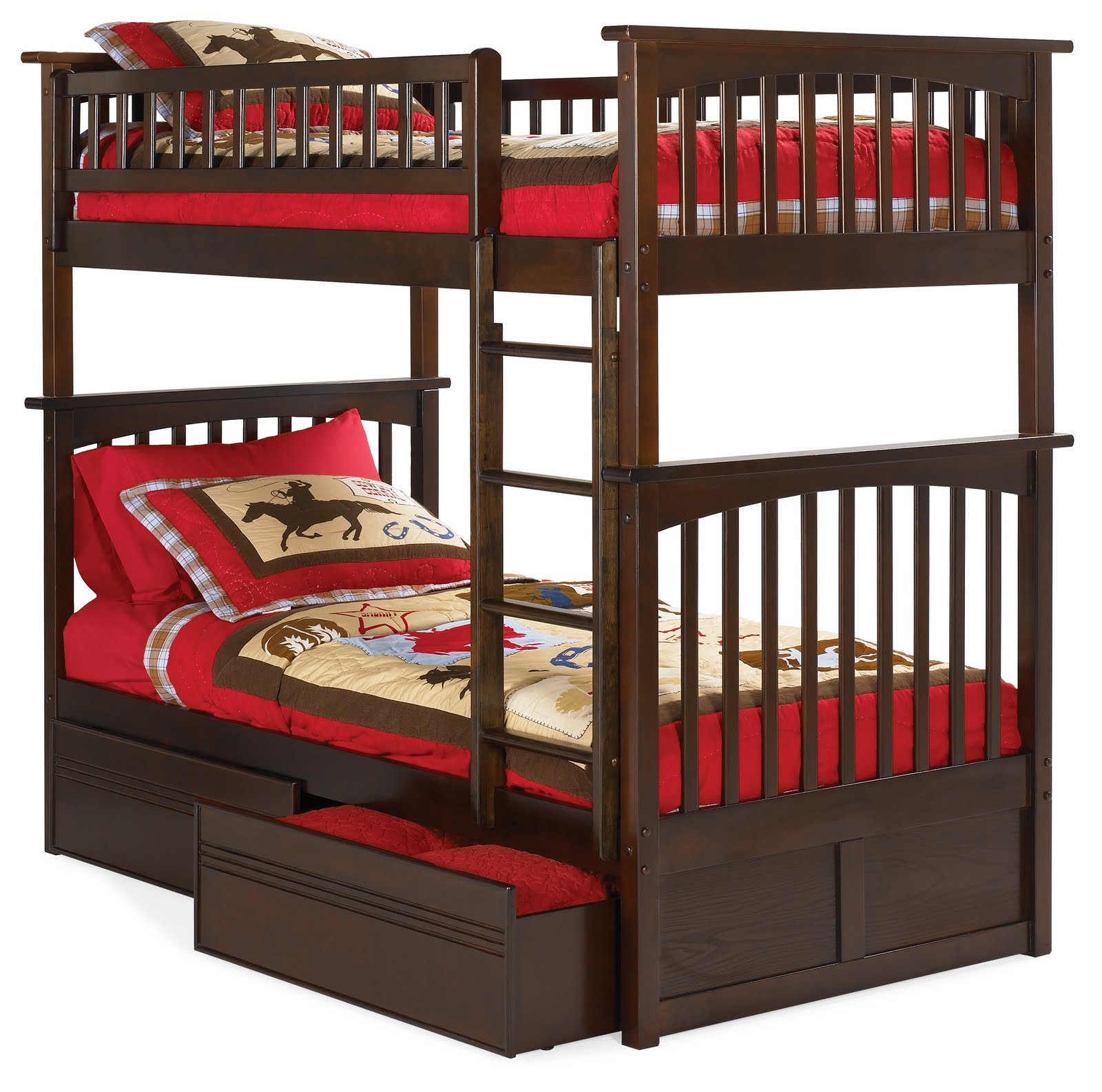
Now you know how to choose a good and not expensive bunk bed for children so that your offspring have a restful sleep, and while awake, they can play on it fun and, most importantly, safely for themselves. If you have any questions or suggestions, write in the comments.
Video: children's bunk beds
